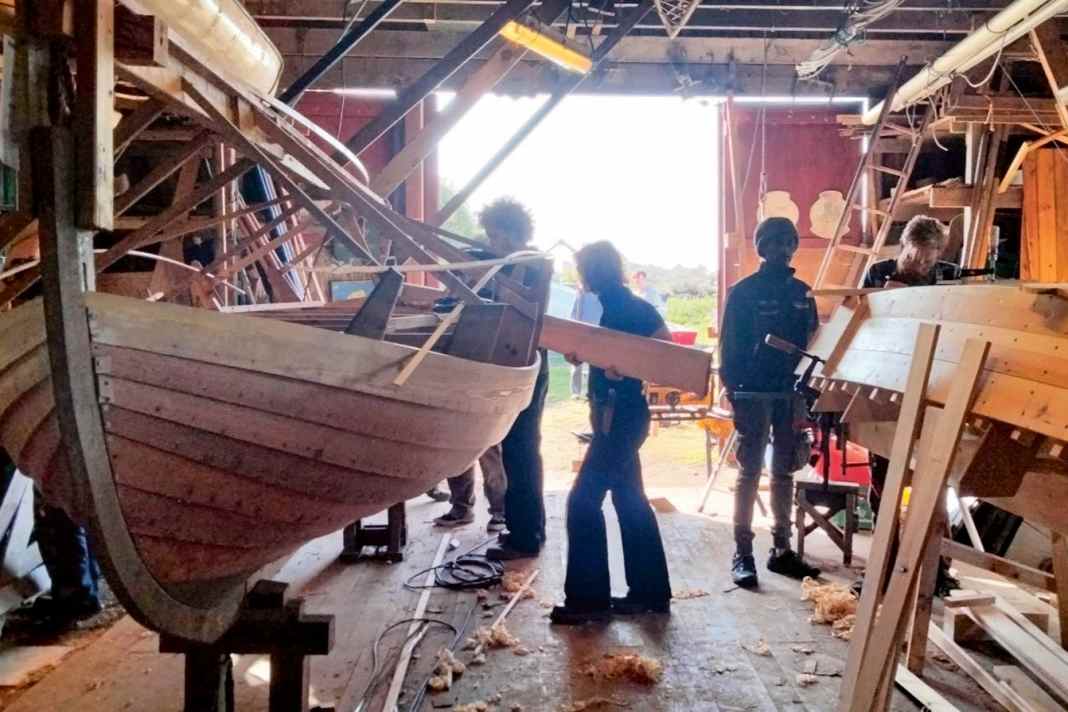


Mr Krueger, what draws you to Strynø?
The Smakke Centre, with which the Landesberufsschule Bootsbau in Lübeck, where I teach, has been working for 20 years.
What does this cooperation look like?
We organise project trips there with our boatbuilding classes. Each trip lasts a week, during which we maintain and repair the centre's Smakke dinghies, which can be hired there to explore the island world and its nature and get to know the traditional vessels. We also work on the replica of such a dinghy ourselves.
What kind of boats are Smakke dinghies?
These are the traditional smaller Danish work boats. "Smakke" refers to the shape of the sail, "dinghy" is the generic term for all open boats. Depending on the requirements, a wide variety of types developed. Smakke dinghies were used for fishing and transporting everything from bricks to schoolchildren. These boats used to have a huge impact on the lives of the islanders in Denmark. And this part of the Danes' cultural heritage is preserved at the Smakkecenter on Strynø. Various boats are also on display there.
For 20 years?
Yes, a project trip like this only lasts a week, during which we also have to complete the work on the other dinghies. Initially, I was there twice a year with a project trip, but now colleagues of mine also go to Strynø with their classes. So we end up making about four project trips a year.
How did the cooperation begin?
I often visited the island privately 25 years ago and had contact with the Smakke Centre. That's when the idea was born. On the first trip in 2004, the project began by taking the mould from a Smakke dinghy from 1918, which is in the centre's museum. In the historic workshop next door, we then gradually erected and planked the frames.
And when will your replica be ready?
In the meantime, the hull has been planked and all that's missing is the rig. But I'm retiring in four years' time anyway. If the Smakke dinghy isn't finished by then, I'll go to Strynø and finish it myself, then I'll have time. (Laughs) After all, one day I would like to sail through the Danish South Sea on this boat.
But first we celebrate ...
Yes, on the third weekend in August, I invited all the alumni to meet up at the Smakke Centre. Many of them have been there over the past 20 years, and some of them have now even set up their own businesses, are training and come with their boatbuilding apprentices, who have also been here themselves.
